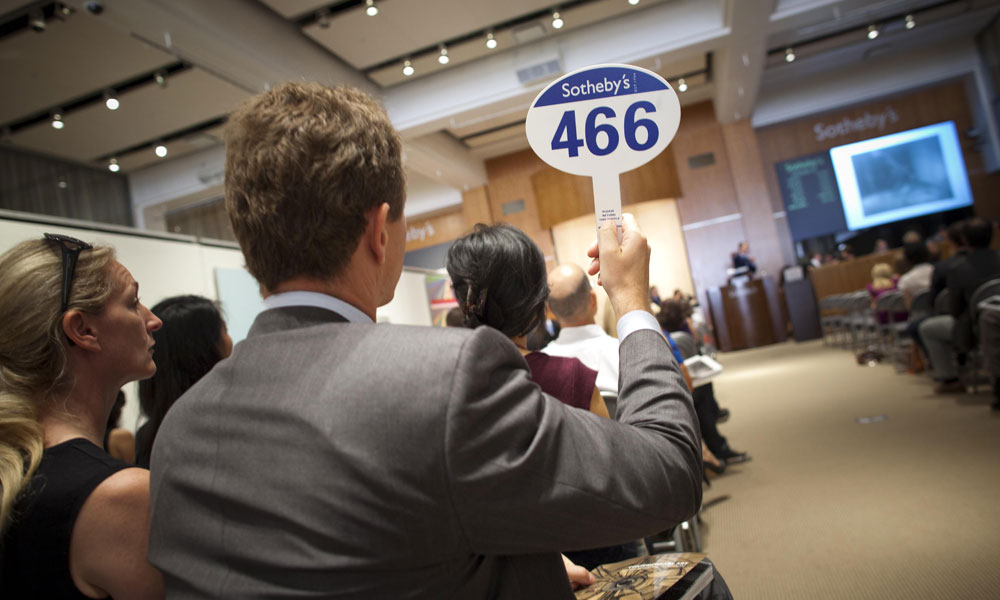
Auction Houses, Visual Artists Grapple Over Royalties
A House bill that would require that U.S. artists be paid royalties on resold pieces of their fine art is facing opposition from major auction houses, which have hired high-powered lobbyists to fight it. An artists group, however, notes that much of the world already has such laws.
For decades, large auction houses like Sotheby’s and Christie’s have sold important pieces of art for millions of dollars.
A bill recently introduced in Congress proposes giving U.S. artists a share of the royalties whenever the works are resold—and that has the auction houses, along with a handful of associations, raising major concerns.
About the Bill
Last month, the American Royalties Too Act (or ART Act), was introduced in the House. The goal of the legislation is to establish a system for visual artist royalties from resales that matches laws elsewhere in the world.
The ART Act, a revision of Rep. Jerrold Nadler’s (D-NY) failed 2011 Equity for Visual Artists Act, would extend the reach of the law to auction houses that do more than $1 million in sales—as opposed to the original bill’s $25 million, a figure that drew criticism from large auction houses at the time for only focusing on their businesses. However, the current bill would cut back on the amount visual artists and their estates would receive on the resale of a piece of art, from the old bill’s 7 percent to 5 percent. The royalty rates would apply only to artwork valued above $5,000, and the maximum royalty an artist would receive on the work would be $35,000.
The bill has the backing of the Artists Rights Society. Its president, Ted Feder, told Artnet that resale royalties are “a fundamental right enjoyed by artists around the world that we hope will finally be accorded to American artists.”
The group, which represents visual artists on copyright issues, worked with Nadler and others on drafting the measure.
Auction Houses Push Back
According to The New York Times, Christie’s and Sotheby’s are investing more than $1 million to hire high-profile lobbyists such as former Solicitor General Paul Clement and Tony Podesta (whose brother John is the White House chief of staff) to fight the bill.
“We’re taking it seriously, even though we don’t think it’s going to pass,” Jane A. Levine, Sotheby’s director of worldwide compliance, told the newspaper.
That effort is proceeding against the backdrop of a U.S. Copyright Office statement in December backing off its longstanding opposition to artists’ royalties, which have become more common globally in recent years.
“[T]he Office has concluded that certain visual artists may operate at a disadvantage under the copyright law relative to authors of other types of creative works,” Register of Copyrights Maria A. Pallante, head of the U.S. Copyright Office, wrote in the document [PDF]. “Visual artists typically do not share in the long-term financial success of their works because works of visual art are produced singularly and valued for their scarcity, unlike books, films, and songs, which are produced and distributed in multiple copies to consumers.”
One other issue that concerns the auction houses involves a loophole that could hurt their businesses: While public auctions would fall under the royalty requirement, private sales of art would not. That could lead more art owners to skip public auctions altogether, the houses worry.
A variety of trade groups and companies have also come out against the bill—among them the Association of Art Museum Directors and the Internet Association, the latter of which represents an auction house of its own (albeit an online one), eBay. In a statement to the Times, IA’s Michael Beckerman suggested that the bill would hurt the free market.
(Michael Nagle/Getty Images News/Thinkstock)






Comments